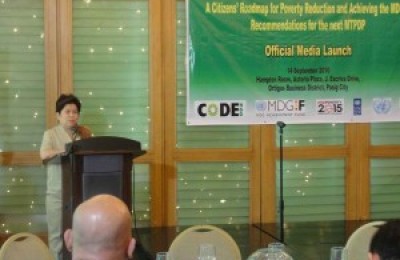Let’s see how President Aquino will resolve this because it involves people who helped him in his bid for the presidency.
Lorenz Neil Santos, InterAksyon.com

In their 65-page petition, the banks urged the high tribunal to stop the government – particularly the Bureau of Internal Revenue (BIR) and the Bureau of Treasury – from implementing BIR ruling 370-2011, which would impose a 20-percent final withholding tax on PEACe bonds sold in 2001.
The eight banks that filed the petition are Banco De Oro, Bank of Commerce, China Banking Corporation, Metropolitan Bank and Trust Company, Philippine Bank of Communications, Philippine National Bank, Philippine Veterans Bank and Planters Development Bank.
Petitioners said the BIR ruling that retroactively applies to the government bonds sold in 2001 is prohibited under the 1997 Tax Code “for being extremely prejudicial to the bondholders, including petitioners who relied in good faith on the BIR declaration that the bonds are exempt from final tax.”
The government, through the National Treasury, is set to pay bond holders P35 billion, including P24.3 billion in interest income or discount.
The Caucus of Development NGO networks or CODE-NGO, through Rizal Commercial Banking Corp., bought the bonds on Oct. 16, 2001 at the discounted rate of P10.17 billion and at 12.75 percent interest.
The government earlier said that it expected to collect about P4.83 billion in tax from the matured bonds.
In 2001, the Bureau of Treasury offered government bonds to the government securities eligible dealers through an auction.
The Rizal Commercial Banking Corporation won the bid and was awarded P35 billion worth of government bonds for only P10.17 billion at a yield to maturity rate of 12.75 percent that will mature on October 18. It in turn sold the bonds in the secondary markets at P11.9 billion.
The banks said they bought the bonds on assurances laid down by various BIR memoranda that the bonds shall not be subject to a 20-percent final withholding tax.
But with the recent BIR ruling, petitioners said, their constitutional rights have been violated.
“Such unilateral imposition of the 20-percent final withholding tax on the interest/discounts realized on the government bonds only on the eve of its maturity with nary any prior consultation with the petitioners and other bondholders also amounts to confiscation of the petitioners’ property without due process,” petitioners said.
Petitioners said deep and liquid capital markets are “the essential building blocks for each country’s economy, supplying the funds for economic growth and job creation.”
However, they said, the “threatened refusal of the government to pay the full face value of the Government bonds to its contractual undertaking and material representation at the time of their issuance, operates as a fraud on investors to their grave or irreparable injury or prejudice, which, in turn, adversely affects their perception of the Philippines as an investiment destination.”
singilin ng tax ang mga bank petitioners, mabayaran sila o hindi ang magpapasan ng pagbabayad niyan ay ang taong bayan din. tuwang tuwa ang mga kumitang laway at kapal lamang ng mukha ang puhunan.
letseng gobyerno ‘yan! kahit sino ang nakaupo ay walang silbi sa dapat pagsilbihan dahil ang pinoproteksyunan ay ‘yung mga masisibang namuhunan upang maluklok ang utuutong mamumuno.
Tama ka MPRivera………..kahit sinong nakaupo walang silbi……bagsak pa rin ang bansa……madami kasing mga rebelde na pasaway….
Hindi lang mga rebelde kundi pati pa mga corrupt official.
Supreme Court orders TRO on 20% Peace Bond Tax.
I knew it would come to this. The complaining banks and their clients would definitely fight this to its bitter end. How long it will take? No one knows, but the 20% tax will still not be paid until this is resolved by (oh, well) THIS Supreme Court! The 20% meanwhile is held in escrow.
The irreparable damage this will cause the country’s image and reputation as a stable and predictable business destination further erodes the much-needed investor confidence, to say the least, and these bunglings will not help alleviate the sad state of the slow trickle of new foreign investments.
We have been overtaken by Vietnam, but hey, Cambodia’s latest numbers suggest they are out to threaten us soon. For all we care, and at the rate we’re going, we’re probably headed towards the tail end of ASEAN in a decade. I won’t be surprised the military junta-led Myanmar/Burma will clobber us, too and we’ll be sending our women as DHs to Rangoon!
Dammit, jail Arroyo, Yuchengco, CODE-NGO we don’t care who else. But puh-leeze, fuckin leave us businessmen alone!
Ellen, since not all your readers are FB subscribers, allow me to post this article in full.
Sa lumalaganap na sa buong mundo “Occupy Wall Street” protest vs corporate greed na kasama na rin ang Pinas, hindi malayong maging isa sa mga issue itong tax exemption na hinihingi ng 8 banko sa tinubo nila sa PEACe bonds transactions.
joeseg, ang kaso ng Peace Bonds Tax sa Pinas malayo naman sa corporate greed. Government greed nga e.